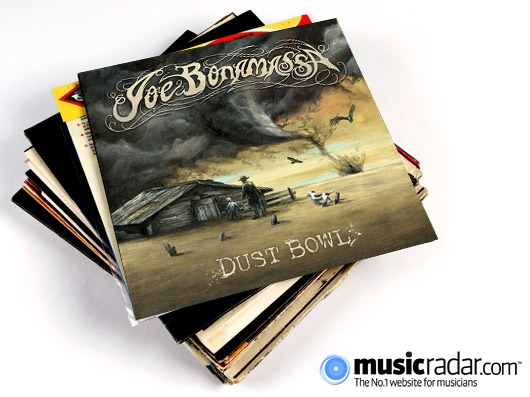
Joe Bonamassa talks Dust Bowl (intro)
"On Dust Bowl, my mission statement was to re-establish myself as a solo artist. I wanted to make a rootsy blues record and remind people that I'm not from England or Greece, which some fans may think. Getting some earthy grit on the tracks was important, but at the same time, I wanted to make a blues album that was different. Basically, I didn't want to compete with myself.
"If you listen to my last few albums, you hear a progression. Last year, though, I did an about-face and made a big rock record with Black Country Communion. Obviously, I knew I shouldn't try to out-rock that! [laughs] But I didn't want to repeat what I had already done solo-wise. So I had to look for new places creatively…mentally, spiritually. It was challenging.
“A few people have remarked to me that Dust Bowl sounds more ‘mature,' and I thought, Well, I made my last record a year ago... I’m not that much older! [laughs] But a compliment’s a compliment. I’ll take it.
“To be honest, it was a hard album to make. I was coming off a whirlwind year. In 2010, I played over 200 dates. I also made the Black Country Communion album and did some promotional gigs with them. So right when I thought I had a break in November, Kevin Shirley, my producer, told me we had studio time booked in Greece. I was like, ‘We do?!‘ I had to clear my head and get creative - fast. The first three days were rough, and I was panicking. But after a while, the band [Anton Fig, drums; Carmine Rojas, bass; Rick Melick, keyboards] arrived and things started coming to me, like the song Dust Bowl.
Vocally, I think I’ve grown. Still, I can’t compete with some of the guest stars who grace the album, legends like Vince Gill and John Hiatt. I was thrilled that they even knew who I was, let alone that they’d want to do duets with me. Man, those guys are smokin’! And Beth Hart, too - she’s unreal. You’ve got to have your A-game on when you work with people like that.
We recorded in a few places - Greece, Malibu, Los Angeles - but to me, there’s a different vibe on the Nashville sessions we did with Vince and John. Of course, I’m playing with a different band, so that explains a lot. But the attitude and spirit is new. I was out of my comfort zone - but in a good way. The Nashville tracks came out great, and they add a nice mix to the record. All in all, it feels pretty seamless."
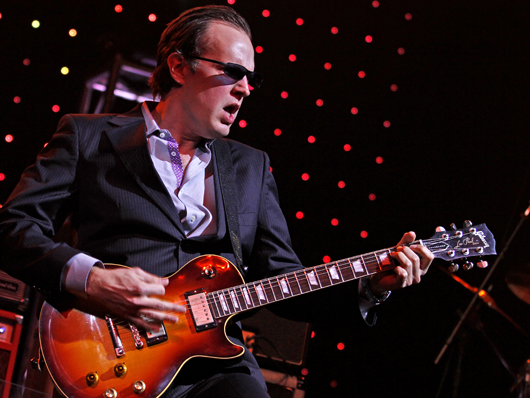
Slow Train
“Kevin Shirley is a swimmer. I don‘t swim. So our routine in Greece was like this: every morning he’d hit the ocean, and then he’d come back to find me on the computer. One day he returned from a dip in the water and said, 'Let’s write a song about a train.' Makes sense, right? [laughs]
“Anton started the song slowly, like a freight train getting its engine going, and we gradually built up the tempo. It reminds me of Jeff Beck’s Let Me Love You Baby. It’s a heavy shuffle. We improvised a lot of the song, particularly the minor interlude section - total off-the-cuff stuff. Kevin got real excited and said on the talk-back mic, ‘That was fantastic! But can you do it again?’ And you know, with improvisation, you really can’t. So the track is a first take.
“I really like the slide part. I was going through something of a Ritchie Blackmore phase last year, and I really wanted an early ’70s Stratocaster with the bullet truss rod. I found a black ’71 model with a three-bolt neck. It was really bright and glassy sounding, though, so it didn’t do the Blackmore thing; it had more of a Ry Cooder slide sound. But I tuned it to an open F# minor and played it through a Marshall Artist 30 Combo, and it sounded massive.”
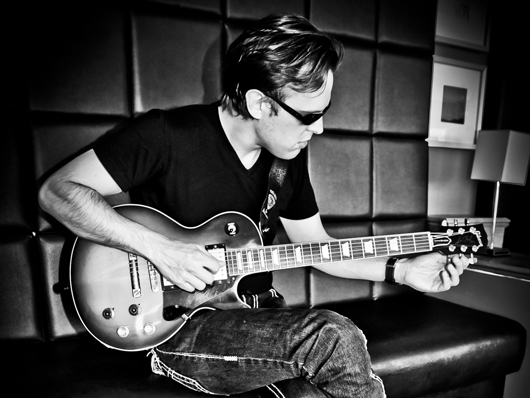
Dust Bowl
“I wrote this song on an old 1967 Barney Kessel guitar that I got in Europe. I was in a guitar shop one day, and a guy who worked there really wanted one of my spare amps. He suggested a trade. So I said, 'Sure, just give me something cool.' He came out with this Barney Kessel guitar. I was like, 'We got a deal!' [laughs]
“Because the guitar had such a long scale, I tuned it really low, almost to A. I sat in the writing room in this house in Greece, just messing around, and this one-chord kind of song started coming to me. It sounds very simple, but the vocal really lifts the chorus.
“We recorded the song, and while we were doing the overdubs, Kevin and I looked at each other and said, ’It needs something, like a mandolin…or a…[snaps his fingers] a baglamas!’ A baglamas is a Greek instrument, very much like a mandolin, only it’s made from a gourd. I never played one before, but I tuned it to the song, and I made it work. The baglamas added a really interesting texture to the track. You wouldn’t think that a blues song would have a Greek instrument on it.
“There’s a cool spoken-word part on the track. I had my amp guy, Peter Van Weelden, do it. It makes no sense at all, but it sounds great because he has such a wonderfully deep voice. A great cameo.”
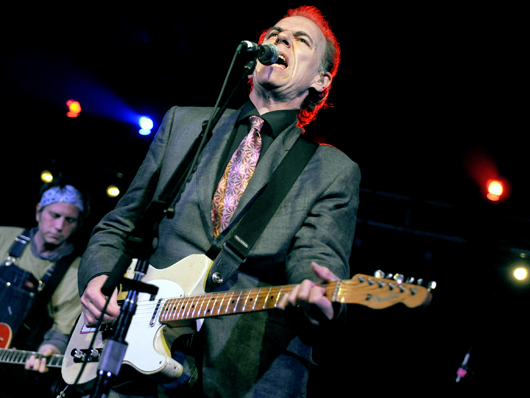
Tennessee Plates
“When you’re a kid and you idolize John Hiatt, to think that you’ll record one of his songs and actually have him sing on it…there are no words, you know? Same with Vince Gill, who plays guitar on this - I’m such a fan. And working in Chet Atkins’ old studio in Nashville really put everything in perspective, like, 'How damn lucky am I?' [laughs]
“The Nashville sessions guys were great. They’re like machines: They come in, do two or three sessions a day, and they don’t make mistakes. Boom - they’re done. Total pros. But they play with great feel. They have a magic all their own.
“Vince was amazing. He let me play his white 1953 Tele, which is the iconic Vince Gill guitar. What a blast! I didn’t get to meet John, unfortunately, because I had to go back on tour. But he came in the next day and nailed his vocal in one take. Guy’s unbelievable.
“I really liked being the weak link in the room. That sounds weird, but it helps me get better fast. The Nashville players are strong, man. And guitar-wise, Vince Gill is like BB King or Eric Clapton in the taste department. Seriously, the guy’s that good.”
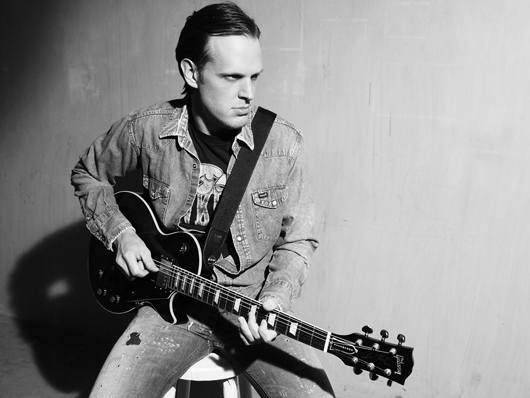
The Meaning Of The Blues
“It’s a really old song, but one that's timeless. Kevin played it for me, and I liked it right off. Great lyrics. So I said, 'Sure, let’s do it. We’ll work up a new arrangement for it.'
“It was another excuse for me to bring the Strat out again. Kevin said he wanted a bit of a Jeff Beck melody, where I kind of play one note and use the whammy bar. I'd done something like that before, melodies that were vaguely ’Beck-ish,’ so I came up with parts that sounded really cool. There’s a lot of interplay between me and Anton on it. It’s one of my favorite tracks on the record.
“There’s a big band feel to it - the way it’s written, and the era it's from, it's like you almost can’t remove that element from it. We didn’t even try, really.”
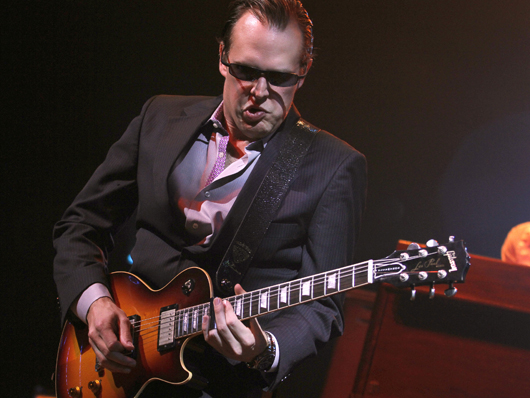
Black Lung Heartache
“I was messing around with the baglamas, trying to come up with a stompin’ blues song to end the record. I was hearing something that you might play on your back porch, that kind of vibe.
“I played what I had for Kevin, and he really liked it. But he said, ’What you have is terrific, but what if the song exploded in the middle?’ Sounded good to me, so I said, ’Great. Let’s go for it.’
“We recorded a rough version of it, and then we laid down the middle section. I did a slide solo, too. Kevin did a mix, we listened to it, and we were lovin’ it - everything was perfect. We came back in the next day to discover that the engineer had erased the mix by accident. All we had was the rough version, so that’s what you hear on the record.
“The lyrics were inspired by the Chilean miners who were rescued after being trapped for so long. I did a lot of research on miners, and I was struck by what brutal work they do. These guys lead tough lives and they have two choices: risk death or starve. That’s some hard stuff that most people don’t have to face.”
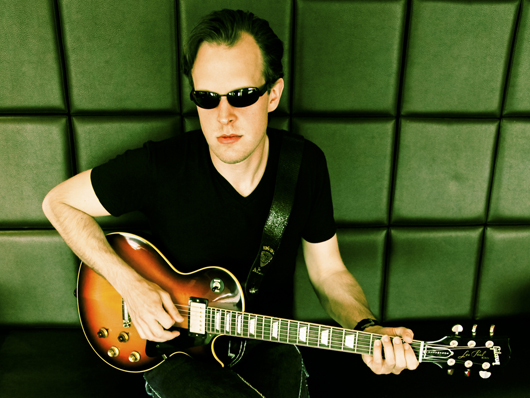
You Better Watch Yourself
“Buddy Guy did perhaps the definitive version of this song, which was written by Walter Jacobs. But I put a new riff on it - I like doing that occasionally to old songs, just to put my own stamp on them.
“I cut it the same day I did The Meaning Of The Blues, so I used the old Strat again. Actually, I wound up breaking the tremolo bar clean out of its cavity - that’s always fun. [laughs] That can happen with an old Strat: You’re getting wild with the whammy bar, going all nuts, and suddenly you feel no resistance at all. That’s when you go, ‘Oops. I know what I just did…’
“I used a George Tripp-modified Crybaby wah pedal. George has built me, like, six or seven wahs - the guy’s incredible. I don’t use the effect a lot, but when I do, I want people to know it. I go for a big sweep, almost like what you used to get with those Morley Power Wahs - all that tremendous high end. It’s huge and dramatic…which is the idea, really.”
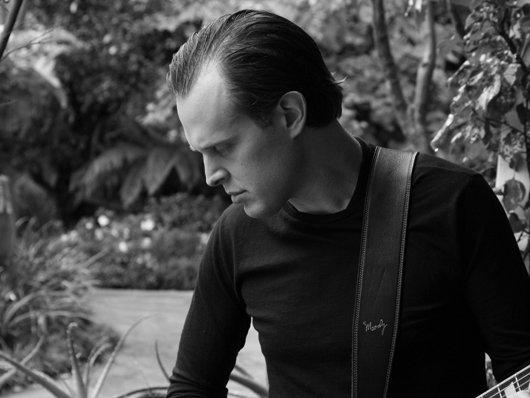
The Last Matador Of Bayonne
“No, it’s not about New Jersey! [laughs] There’s actually a Bayonne in France, which is where this song got its title. I was doing amphitheatre dates in Europe last year with ZZ Top, and in a lot of these cities, when they say 'amphitheatre,' they’re not kidding. They’re talking about Roman-style bullrings.
“Over the years, I think they phased out the killing of the bulls. The matadors are there more for show these days. But during one of these gigs, I was standing in one of the areas where the matadors were kept, and I saw this little door. So I opened it and I saw this little prayer booth, where I guess a matador would sit and pray before going out to face a bull. I started to think, Who was the last guy to do this?
“It was a great concept for a song - again, to think that you may die doing what you do for a living. After I cut the track, I met up with this amazing musician, Tony Cedras, who’s played with Paul Simon, and he came to the studio and listened to it. He put down this incredible trumpet part, absolutely brilliant. It really added the right amount of pathos. Now I can’t picture the cut without the trumpet.”
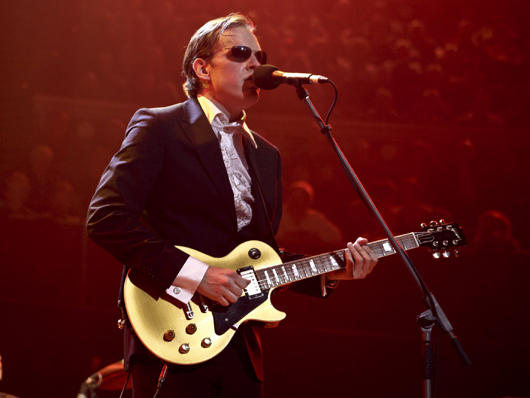
Heartbreaker
“No, it’s not the Led Zeppelin song. It’s the Free song of the same name. I just love the riff. And that Simon Kirke drumbeat gets me every time. Glenn Hughes does a vocal cameo, and he’s simply unreal.
“This was the last song we did in Greece before we packed up and came back to the States. Because we were getting ready to leave, a lot of my gear was already gone. All I had was left with me were my Marshall Super Bass head and a cabinet - total old school. But it was exactly the kind of setup Paul Kossoff [Free’s late lead guitarist] might’ve used.
“I used a Les Paul on it. I didn’t do anything tricky. On a cut like this, you use your guitar’s volume control on 4, and maybe you turn it up to 6 for lead. That’s it. Very simple but very effective. I’d be lying if I said I wasn’t channeling Paul Kossoff in some way. Whenever I pick up a Les Paul, I think about him.”
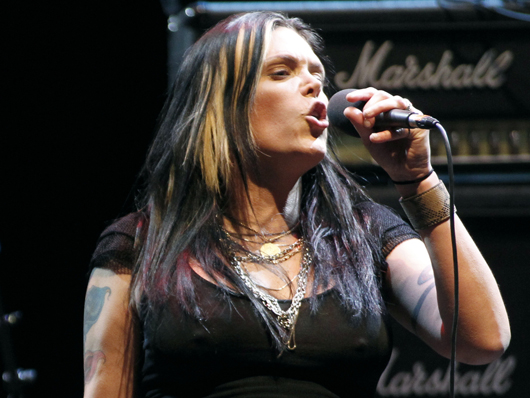
No Love On The Street
“This is the last song we recorded for the album. We needed one more oddball choice, and Kevin came up with this track, which was written by Michael Kamen and Tim Curry. He played it for me and I said, 'It’s perfect!'
“What I like about it is, it’s a very desperate blues track - moody and dark and strange. We got this incredible vocalist, Beth Hart, to sing on it, as well, and she’s great, man. I’m actually doing an album with her; it’s going to be a collection of soul covers. She was in the studio with us at the time, and I thought, Well, I might as well have her help me out on this one; she got the perfect voice. She’s killer!
“We cut it live, we’re singing live - it’s got spirit and true feeling. Again, it’s a bit of a weird choice, but that’s why I like it so much.You have to throw some left curves at people sometimes.”
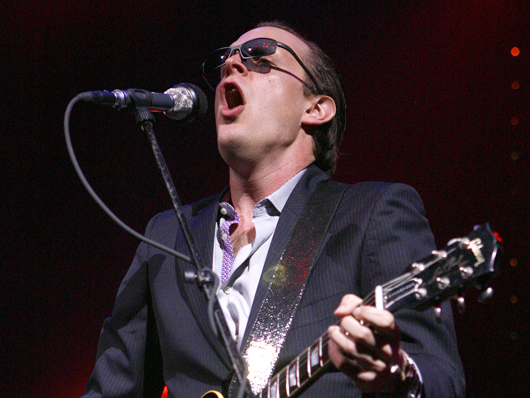
The Whale That Swallowed Jonah
“It’s a biblical title, obviously. The lyrics have a certain bravado to them, sort of along the lines of 'The world might get one guy, but it won’t get me.' I wrote it for the Nashville sessions because I thought it would really suit the players, which was definitely the case. I overdubbed the vocal in Kevin’s studio in Malibu.
“I wanted to play mandolin on it, but I didn’t have one with me, so I went to George Gruhn’s place in Nashville and bought one. Anything with strings, you can find it at George’s store. I could spend all day there - and a lot of money, too! [laughs]
“It’s my father’s favorite song on the album. He called me up when he heard it and said, ’You have to play it live. You’ll have the audience dancing in the aisles!’ [laughs] I told him I would take his suggestion under advisement.”
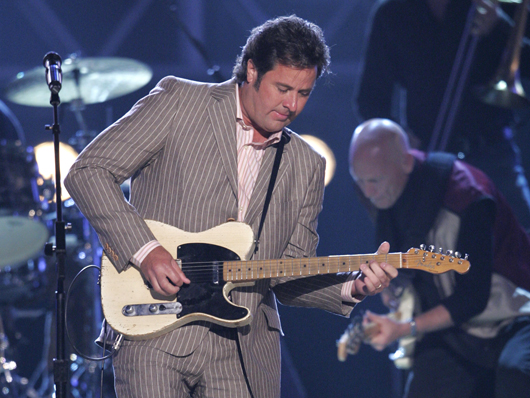
Sweet Rowena
“This is Vince’s song, but I have to take this moment to thank his nine-year-old daughter for making it happen. We were at the studio in Nashville, and Vince said, 'I’ve got a song, but it’s on the hard drive on my computer.' So he called his wife, Amy, who wasn’t home. The babysitter was there, but she couldn’t figure out the computer. Thank goodness Vince’s daughter located the file and e-mailed it to us. She deserves all the credit.
“It’s a great number. I kind of played the BB King role. Vince sings lead, and man, he’s such an incredible vocalist and guitarist. I didn’t even try to go toe-to-toe with him. That’d just be plain foolish. [laughs]
“But like I said, when you’re working with an artist of his caliber, it makes you better. You have to be if you want to keep up, even a little. Vince is on the left side of the speakers, guitar-wise and vocal-wise, and I’m singing and playing guitar on the right. It’s a total fun deal.”
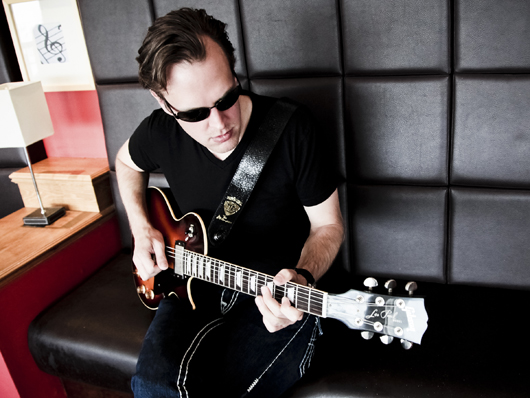
Prisoner
“OK, are you ready for something really different? Joe Bonamassa covers Babs - Barbra Streisand. That’s gotta turn some heads, right? [laughs]
“This is one of those crazy things we were messing around with. We were sitting around going, ‘How far can we take this?’ And yeah, doing Babs - who would expect that?
“All in all, I have to say, it was extremely hard to sing. I’m really pushing my register to the limit, totally straining. I start out soft and go to the growl. The people who’ve heard it love it, but I don’t know if you’ll be hearing me sing it live. I was blue in the face when we finished tracking it.
“I’m unapologetic about the song, through. It works as an album closer, and in a weird way, it serves as the glue that holds everything together. On this record, you’ve got blues, there’s some Nashville things, and then we finish it off in a most surprising way. I don’t know what Barbra Streisand will think it she ever hears my version of Prisoner. She’ll probably send me a cease-and-desist letter. But then, at least I‘ll know that she did listen to it!” [laughs]
To pre-order Joe Bonamassa's Dust Bowl, click here
Liked this? Now read Joe Bonamassa: My 11 favourite blues guitarists
Connect with MusicRadar: via Twitter, Facebook and YouTube
Get MusicRadar straight to your inbox: Sign up for the free weekly newsletter
Joe is a freelance journalist who has, over the past few decades, interviewed hundreds of guitarists for Guitar World, Guitar Player, MusicRadar and Classic Rock. He is also a former editor of Guitar World, contributing writer for Guitar Aficionado and VP of A&R for Island Records. He’s an enthusiastic guitarist, but he’s nowhere near the likes of the people he interviews. Surprisingly, his skills are more suited to the drums. If you need a drummer for your Beatles tribute band, look him up.
